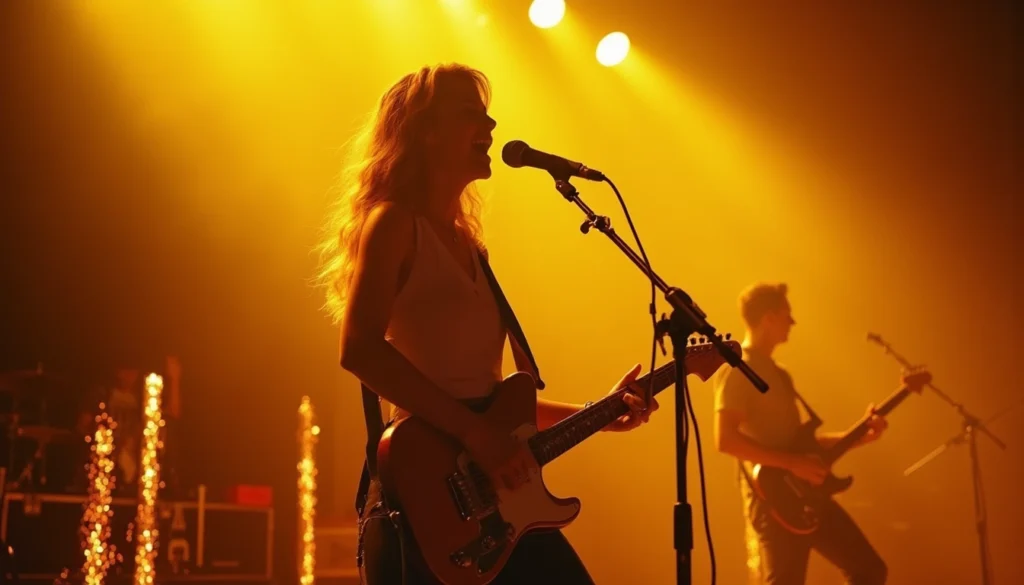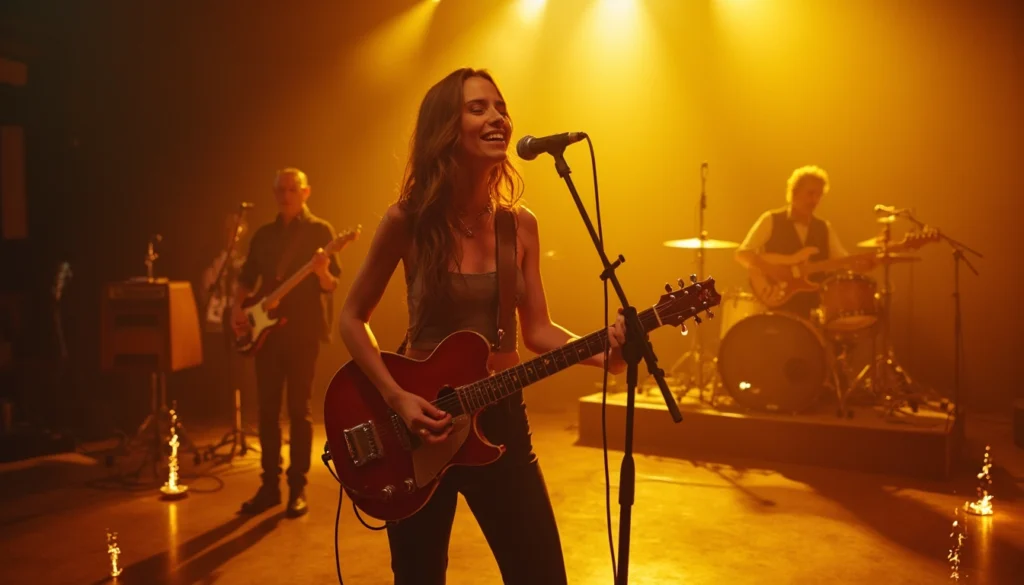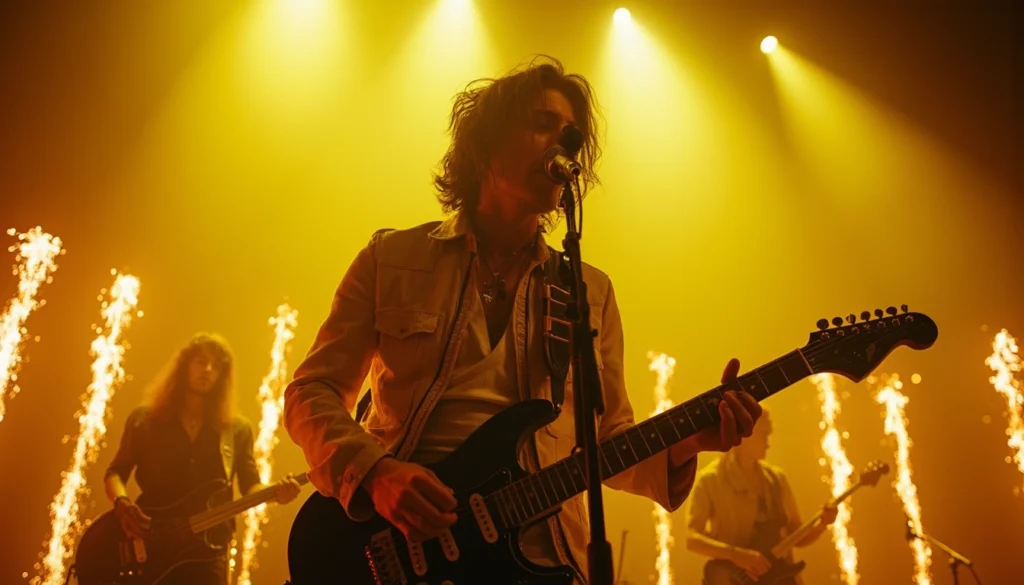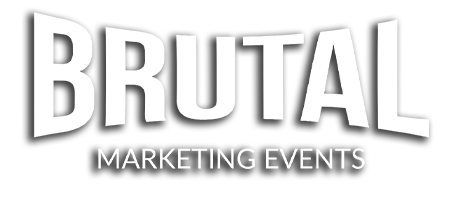Planning a successful event isn’t just about filling seats—it’s about ensuring every effort, dollar, and minute spent translates into profitability. Whether you’re hosting a concert, a festival, or a special event, it’s crucial to lay the right foundations to maximize profits from the very start. In this guide, we’ll walk through actionable strategies to help you increase your event ROI and boost profitability without cutting corners. Let’s dive into these essential tips to get you started on the right path!
1. Start with Strong Marketing Foundations

“Successful events don’t happen by accident—they’re planned with precision, from knowing your audience to leveraging partnerships”
Know Your Audience: Demographics and Interests
One of the most critical steps in maximizing event profitability is knowing exactly who your audience is. Understanding demographics (age, gender, location) and interests (music genres, favorite artists, hobbies) will help you tailor your marketing campaigns to reach the right people.
- Demographic data helps you target fans who are most likely to attend your event. For example, if you’re promoting a rock concert, you might focus on younger adults aged 18-34 who are active on platforms like Instagram and TikTok.
- Knowing audience interests allows you to craft messages that resonate. For instance, if your audience enjoys live acoustic sets, you could emphasize this feature in your promotional content.
By aligning your marketing with your audience’s preferences, you can attract more attendees and maximize ticket sales.
Create a Marketing Roadmap
Every successful event begins with a clear, step-by-step plan for promotions—your Marketing Roadmap. Think of it as the blueprint for how you’ll spread the word, generate excitement, and ultimately sell tickets. Without a roadmap, it’s easy to lose focus, miss deadlines, or fail to reach your audience effectively.
Here are the core components to include in your Marketing Roadmap:
- Start Planning Early
Begin mapping out your strategy at least 3-6 months before your event. The earlier you start, the more time you have to build anticipation and avoid rushing later. Break down your planning into clear stages with goals for each: for instance, when you’ll start announcing the event, launching ticket sales, and ramping up promotions.
Pro Tip: Write down a timeline of key dates, including ticket sales launch, social media campaigns, and deadlines for creating content like videos or flyers.
- Create Excitement During the Early Stages
The first phase of your roadmap is all about generating buzz. Use teaser posts, behind-the-scenes videos, or announcements to hint at what’s coming without giving everything away. Share things like sneak peeks of the artist lineup, location, or special features of the event. Make sure your messaging focuses on building curiosity and excitement. Fans are more likely to share your content when it’s intriguing and fun, which helps expand your reach organically.
Example: Post a video countdown on Instagram or a “big reveal” on Facebook to announce the event.
- Promote Ticket Sales Strategically
Once the event is announced, move into your sales-focused phase. Use early-bird pricing, limited-time offers, or exclusive discounts to encourage quick purchases. Let your audience know there’s value in buying tickets early rather than waiting until the last minute.
Pro Tip: Use social proof—like posting about how many tickets have already sold or highlighting customer testimonials from previous events.
- Build Momentum Closer to the Event
In the weeks leading up to the event, step up your promotional efforts. Share more detailed content, like artist interviews, rehearsal footage, or interactive content (polls, contests, etc.). Your goal here is to keep your event top-of-mind for your audience while encouraging ticket sales.
Example: Run countdowns or flash sales to create urgency in the final push before your event.
- Engage Your Audience with Consistent Communication
Consistency is critical. Use a content calendar to map out your social media posts, email campaigns, and paid ads. Make sure you’re reaching your audience regularly without overwhelming them.
Pro Tip: Include reminders for important dates, like “only 2 weeks left to buy tickets” or “last chance for VIP packages!”
- Allocate Budget Wisely
Your roadmap should include a clear budget for promotions. Decide early on how much you’ll spend on paid ads, partnerships, and other marketing efforts. Keep some funds aside for last-minute changes or opportunities that arise closer to the event.
- Assign Roles and Responsibilities
If you’re working with a team, your roadmap should clarify who’s responsible for what. Assign specific tasks like creating content, monitoring ads, or responding to comments on social media. This ensures your entire team is aligned and nothing falls through the cracks.
Example: Assign one person to handle social media comments and another to manage email campaigns.
- Track Progress and Stay Flexible
Your roadmap is a guide—not a rigid set of rules. As your event date approaches, track performance metrics like ticket sales, engagement rates, and ad effectiveness. Adjust your strategy if certain efforts aren’t working as expected.
Example: If Instagram ads are performing better than Facebook ads, allocate more of your budget to Instagram.
By including all these components in your Marketing Roadmap, you’ll stay organized, maximize your resources, and ensure your event reaches its full potential. Whether you’re planning for a small venue or a massive festival, a clear roadmap helps you execute every phase with confidence.
Engage Partners Early: Collaboration with Artists and Sponsors
Partnering with artists and sponsors early on can significantly boost your event’s visibility.
- Work with artists to share exclusive content like rehearsal videos or behind-the-scenes snippets to create buzz.
- Collaborate with sponsors to co-promote the event and leverage their audience base. For example, a local radio station could run ticket giveaways, or a popular bar could host a pre-concert party.
- Reach out to local businesses for cross-promotional opportunities, such as discounts for concertgoers who show their ticket stubs at nearby restaurants.
2. Manage Costs Without Compromising Quality

“Smart budgeting isn’t about cutting corners—it’s about making every dollar count towards a more profitable event“
Efficient Budgeting for Marketing and Promotion
One of the biggest challenges concert organizers face is managing marketing expenses. With so many promotional channels available, it’s easy to overspend on efforts that don’t deliver results. To optimize your budget, start by identifying the platforms where your target audience is most active. For instance, if your event caters to younger fans, focus on Instagram ads; for an older demographic, consider investing in Facebook and email marketing.
A smart approach involves using data analytics to track which channels are driving engagement and ticket sales. Tools like Google Analytics and social media insights can help you measure performance and allocate your budget more efficiently. If you notice that certain ads or platforms aren’t delivering, reallocate those funds to higher-performing areas.
To make sure you’re spending your money wisely, start by creating a clear budget plan that focuses on marketing strategies that have the most impact. For example, put more money into retargeting ads, which are ads that show up for people who have already shown interest in your event. These ads are usually more effective at getting people to buy tickets because they target fans who are already interested. By focusing your budget on what works best, you can get the most out of your investment (ROI, or return on investment) while keeping your marketing costs under control.
Tiered Ticketing Options
Offering tiered ticket options is an effective strategy to attract a diverse audience with varying budgets. This approach not only increases your revenue but also improves the overall experience for fans by offering something for everyone. For example:
- General admission tickets appeal to budget-conscious fans who are looking for an affordable concert experience.
- VIP packages can include perks like early entry, meet-and-greet opportunities, or exclusive merchandise. These options cater to fans willing to pay extra for a premium experience.
- Premium seating options with perks like a dedicated viewing area, comfortable seating, or access to a private lounge can draw attendees who value comfort and exclusivity.
Tiered pricing also allows you to create early bird discounts to encourage advance sales, which helps generate initial momentum and reduces last-minute sales pressure. By segmenting your ticket prices, you can appeal to a wider range of fans, ensuring you capture as much revenue as possible.
Leveraging Partnerships and Sponsorships
Partnering with local businesses and securing sponsorships can significantly reduce your event costs. Collaborations can cover everything from venue rental fees to merchandise production and food and beverage offerings. For example:
- A local brewery might sponsor the event by providing drinks in exchange for branding opportunities.
- Merchandising partners can handle the production and sales of event-themed products, allowing you to share profits without upfront costs.
- Food vendors could be invited to set up stalls at your event, with a portion of sales going towards covering your event expenses.
These partnerships not only offset costs but also enhance the overall experience for attendees. By incorporating sponsors, you can allocate your budget to other areas, like artist fees or stage production, without compromising the quality of your event.
3. Track Metrics to Refine Your Strategy

Monitoring Campaign Performance
To maximize event profitability, it’s essential to continuously track how your marketing campaigns are performing. Metrics like engagement rates, ticket sales, and conversion rates can reveal what’s working and what needs adjustment.
- Use tools like Google Analytics or Facebook Insights to monitor your campaigns in real time. If you see low engagement on certain ads, adjust your messaging or target audience.
- Track click-through rates (CTR) on your email campaigns to see which subject lines and content generate the most interest.
Adjusting Tactics Based on Data
Flexibility is key in event marketing. If your ticket sales are lagging, don’t be afraid to pivot your strategy. Use data to identify what’s working and what’s not. For example:
- Launch flash sales or time-limited offers to boost last-minute ticket purchases.
- Use retargeting ads to reach people who visited your event page but didn’t buy tickets. These ads can act as a nudge, reminding potential attendees to complete their purchase.
- Consider adjusting your social media content based on what’s gaining the most traction—whether it’s videos, behind-the-scenes posts, or artist interviews.
Real-time adjustments based on performance data can make a significant impact on ticket sales and overall profitability.
Evaluating Attendee Feedback for Future Improvement
After your event, gathering attendee feedback is crucial for continuous improvement. Use post-event surveys, social media polls, or even informal feedback through comments and reviews to understand what attendees loved and where there’s room for improvement.
- Ask attendees about their overall experience, favorite moments, and any suggestions for improvement.
- Use this feedback to refine your marketing strategies for future events, ensuring they’re even more profitable.
Key areas to focus on include ticket pricing, on-site experiences, and marketing effectiveness. For instance, if attendees mention that they found ticket prices too high, consider adjusting your tiered pricing for the next event. Similarly, if fans loved the behind-the-scenes content you shared on social media, incorporate more of that into your future promotions.
Using attendee insights not only improves future events but also strengthens your relationship with fans, leading to higher attendance rates in the future.
Set Your Event Up for Success from Day One
Maximizing event profitability isn’t just about selling tickets—it’s about creating a well-rounded strategy that includes effective marketing, efficient budgeting, and continuous improvement. By following these top tips, you can set your concert up for financial success and create memorable experiences for your attendees.






